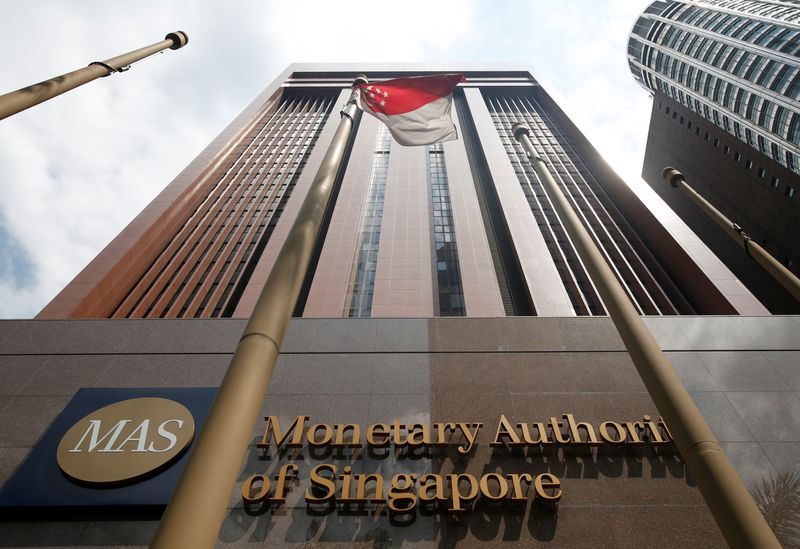Singapore seen keeping monetary policy unchanged as inflation risks linger
2024.10.09 03:30
By Xinghui Kok
SINGAPORE (Reuters) – Singapore’s central bank is widely expected to keep monetary policy unchanged next week and hold off easing settings amid inflation and growth uncertainties caused by geopolitical tensions.
Of the 10 analysts polled by Reuters, nine expect the Monetary Authority of Singapore (MAS) to hold off making changes to its policy at the scheduled review next Monday.
“Oil prices have climbed from recent geopolitical tensions in the Middle East, while extreme weather conditions are still holding sway over food prices, which remain above pre-pandemic levels,” said Moody’s Analytics economist Denise Cheok.
“We see a reduction of slope of the S$NEER policy band in the first half of the year, while a more drastic move of bringing down the mid-point of the band might be on the cards in the second half of 2025, should imported inflation continue to step down discernibly.”
Cheok thinks MAS is likely to ease only next year.
Inflation in the Asian financial hub remains sticky. While it cooled from a peak of 5.5% in early 2023, it remained at 2.7% year-on-year in August.
The central bank expects core inflation to ease more significantly in the final quarter to 2.5% to 3.5% for the year.
Singapore is often seen as a bellwether for global growth as its international trade dwarfs its domestic economy.
Growth slowed to 1.1% in 2023 from 3.8% in 2022. Its GDP rose 2.9% on a year-on-year basis in the second quarter of 2024, stronger than expected and leading economists to upgrade their forecasts.
The trade ministry in August adjusted its GDP growth forecast range for 2024 to 2.0% to 3.0%, from 1.0% to 3.0% previously.
Lee Yen Nee, a risk analyst at Fitch Solutions unit BMI, said: “The economy has been performing at close to its potential, which suggests that there is no hurry for the MAS to adjust its policy.”
Central banks globally have started to cut rates. The Federal Reserve last month delivered a larger-than-usual half-percentage-point reduction, while the European Central Bank is tipped to cut rates next week for the third time this year.
Maybank economists said the falling SORA (Singapore Overnight Rate Average) interest rate alongside the U.S. rate cuts can be seen as a de-facto easing.
Instead of using interest rates, Singapore manages monetary policy by letting the local dollar rise or fall against currencies of its main trading partners within an undisclosed band, known as the Singapore dollar nominal effective exchange rate, or S$NEER.
It adjusts policy via three levers: the slope, mid-point and width of the policy band.
The outlier expecting a loosening of monetary policy next week was UOB bank, which cited major central banks in advanced economies’ easing and the world was in a “last mile of disinflation”.
UOB analysts expect a slight reduction to the S$NEER slope, but said “the prospect of a delay to policy normalisation to January or April 2025 remains.”
The MAS has not changed policy since a tightening in October 2022, which was the fifth in a row, as broader concerns about growth kept authorities sidelined.

Core inflation peaked at 5.4% in the first quarter of 2023 and headline inflation at 7.3% in the third quarter of 2022.
MAS this year began making policy announcements every quarter instead of semiannually.








